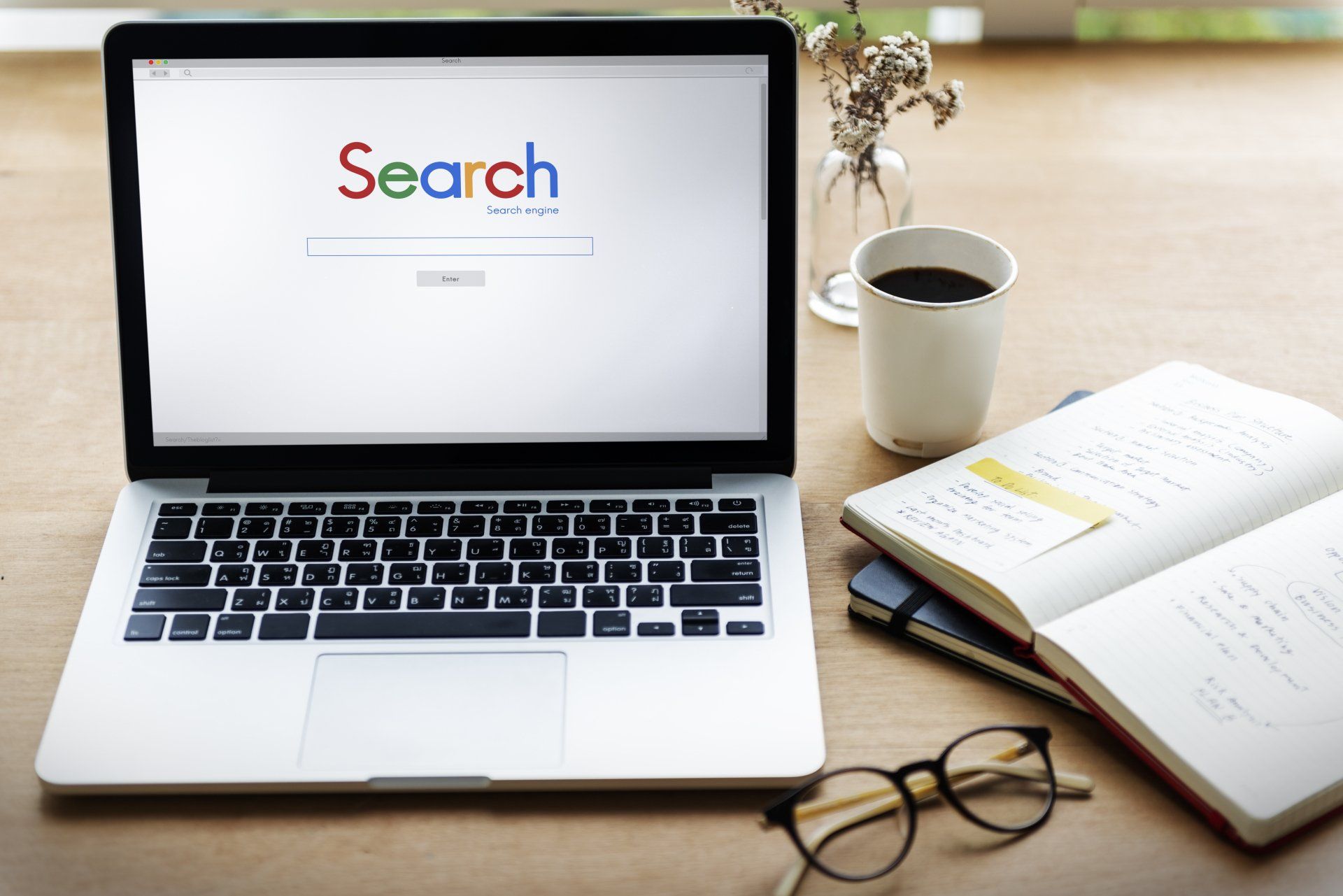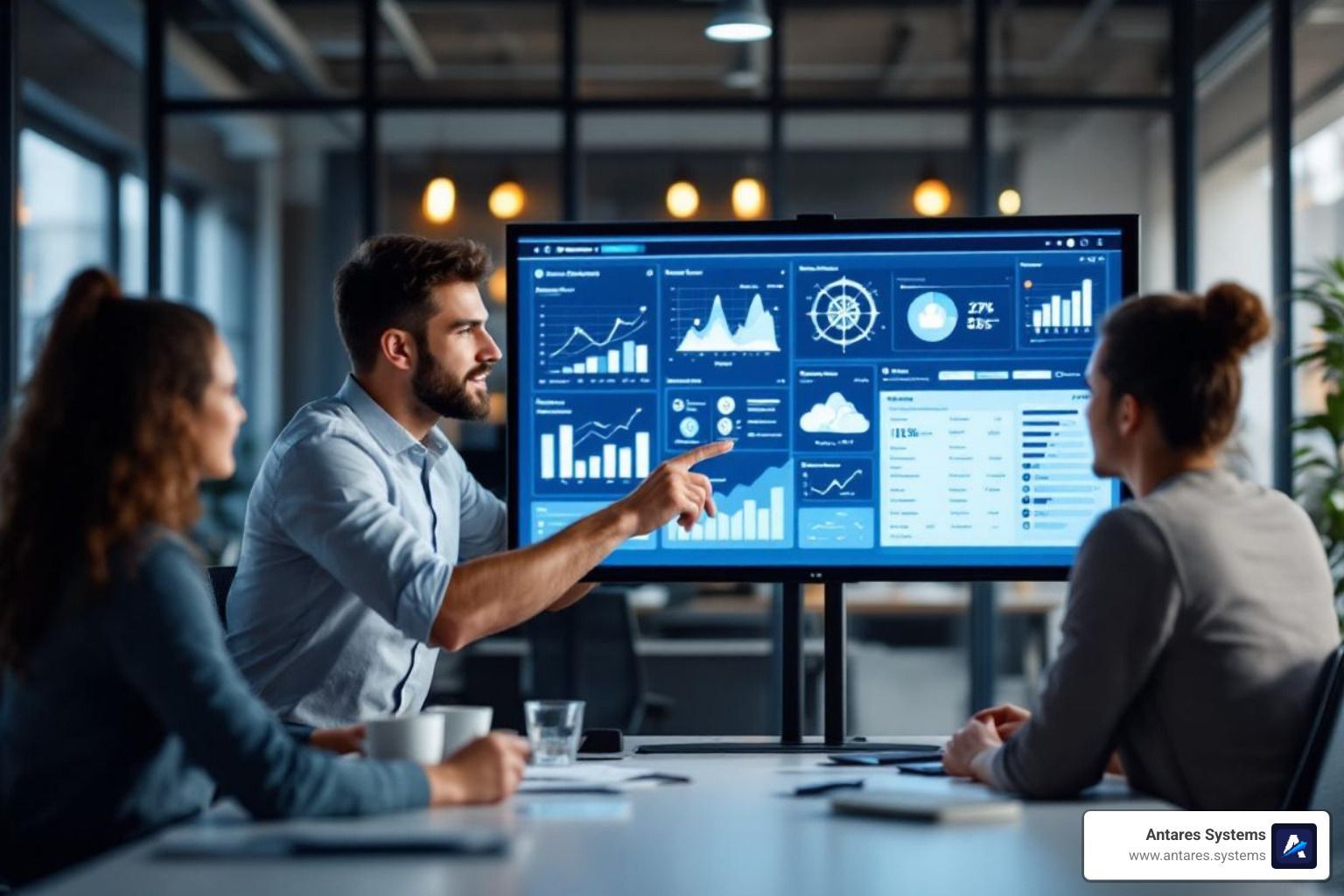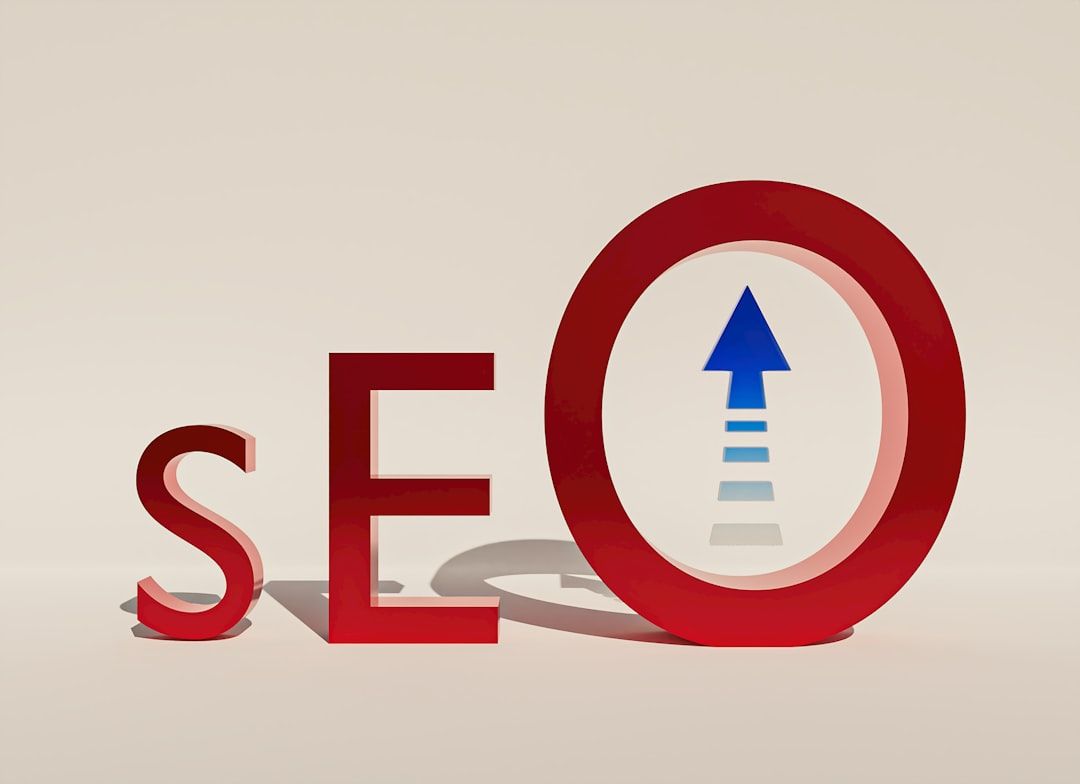Optimize Your Website: An On-Page SEO Guide

Optimize Your Website: An On-Page SEO Guide
It's no secret that on-page SEO is a big deal. Every on-page SEO guide out there will tell you the same thing: on-page activity is important for search engine optimization.
What do we mean by on-page? On-Page SEO refers to optimizing your web pages themselves so they'll rank as highly as possible in Search Engines such as Google and Yahoo. While off-page factors, such as backlinks, will influence your SEO rankings slightly, on-page elements such as page speed, content, and meta tags (like page titles and meta descriptions) are much more important, because these are the off-page SEO basis.
The reality of on-page SEO is that it can be one of the most difficult and time-consuming tasks for any website owner, especially if you're new to on-page optimization or just need some fresh ideas. This on-page SEO guide will give you the basics of on-page optimization and help you get started on what can be a long journey will help you optimize your website for search engines by providing an on-page SEO guide!
What is on-page SEO?
While off-page SEO is about backlinks, there is also its counterpart, on-page SEO. On-page SEO is an on-page activity that search engines use to rank web pages. On-Page elements are all of the individual components that make up your website. On-Page SEO factors include things like: meta tags (title tag and description), keyword density, load speed, content, links on the page, and images on the page.
There are many on-page factors that search engines take into account when ranking your site pages. On-page optimization usually refers to optimizing your website so it'll rank as highly as possible.
How important are each of these on-page activities in ranking a website? Here's where it gets tricky... while I could give you an exact number or percentage saying how much each on-page factor influences SERPs rankings, there isn't one specific answer here because it varies across different search engines. For example, Yahoo!'s algorithm might value title tags more than Google does. For on-page SEO, you'll want to focus on the on-page activities that are most important for your specific search engines.
Why is on-page SEO important?
On-page SEO is important because search engines like Google and Bing rank on-page elements as a way of determining whether your website deserves to be ranked on their search engine results pages. If on-page SEO is important for Google, it's probably just as important for Yahoo! and Bing.
On-page SEO is important because on-page elements like meta tags and keywords can influence your search engine rankings. For example, Google's algorithm might weigh on-page SEO factors such as title tag and description more heavily than it does backlinks from other websites. If you want to rank highly on search engine SERPs, you'll need to optimize for on-page SEO!
On-Page SEO Elements
Below you'll find a list of SEO elements that you should focus on optimizing to help your website rank as highly as possible in search engine results pages.
● Page Content
● Meta descriptions
● Title tags
● Image Optimization
● Alt text
● Page URLs
● Internal Links
● Site Speed
On-Page SEO basic strategies
There are many on-page SEO factors that search engines take into account when ranking web pages. On-page strategies can influence where your website and web pages rank in SERPs (Search Engine Result Pages). The on-page activities you should focus on will vary depending on what type of website you're building and which site is the primary driver of traffic to your site. For example, if your blog gets organic traffic from Google then your posts must have meta tags so they'll appear higher up in searches!
All of the on-page activities mentioned above (keyword density, content, links on the page, images on the page) are all on-page factors that search engines use to determine your website's relevancy and ranking. So, while on-page optimization is a huge topic on its own, here are some of the most important technical SEO factors you should know about.
SEO optimized Content
The page content is the on-page factor that search engines use the most to determine your website's relevance and ranking. The first step in optimizing your website so it will rank as high as possible in Search Engines is creating well-optimized on-page content that provides value to users but also incorporates one or several major keyword phrases into the text without being too spammy about it. How well does your content match up with what someone is searching for? While many on-page SEO factors influence page rankings on SERPs, the way you create content also plays a huge role in the user experience of your website. If you're optimizing for on-page SEO on your site, you'll want to make sure that page content and site elements (like meta tags) are on point. Here are some things you must do to obtain optimal quality and ranking of your content:
- Keyword Research: Keyword research is one of the most important Technical SEO activities. You want to make sure you know what keywords potential customers might use when searching for products or services like yours! Choosing the right target keyword will be a huge ranking factor difference.
- Competition Analysis: Once you know what keywords your potential customers might use on search engines, it's important to analyze how competitive those keywords are. In other words, how many websites are on the first page of search results for those keywords? This is a great way to understand whether or not your content will be found on search engines.
- Type of content: You must consider what the user will think of your material when they include it in their search intent. The type of content that you make depends on what you want to provide to the user, if you want them to be aware of something, make them consider it, or get them to decide on your brand or product.
- Content Optimization: Now that you know what kinds of keywords potential customers might use on Google and Bing, it's important to optimize page content with those keywords in mind. You want to make sure that SEO elements like keyword density, page content, and on-page SEO optimization are on point!
Structured Data
Structured data is a method of categorizing information on a webpage and classifying that content on a high level. Structured data on a particular page will have an impact on the amount of crawling and indexing that Googlebot does on that page and the website as a whole. There are not many on-page SEO strategies you can do to directly influence structured data, but it is a good on-page signal that search results show it to determine page content relevancy and ranking on Google.
Schema Markup
The schema markup on a page can help search engines understand what the content on that web page is all about. It is applied to the HTML source code. This helps Google and Bing to better index your pages in search results. You can use schema markup on images, videos, and links on your page to help search engines index the content on your page better. As you might expect, Google has a specific tool to display data of these types. There is a list of schema markup categories, so be aware of checking which applies to you, as well as if it applies to the search engine you aim to get a better ranking.
We already made a brief
guide to apply schema markup to your SEO on-page strategy, so if you want to know how the process is, go ahead and check it out.
Meta descriptions are meta tags that describe on-page content on search engine result pages. Meta descriptions function as a sort of advertisement - they're the summary you see on Google and other search engines when your web page shows up in organic SERPs (Search Engine Results Pages). Search engines place a lot of weight on on-page SEO factors that happen early on within websites (the text Google sees before it scrolls). Using your target keyword phrase in the meta description, title tag, image alt tags, heading Meta Titles and Descriptions helps search engine spiders understand what your on-page content is about and should be optimized with keywords.
Title tags are on-page SEO factors that search engines use to determine on-page content relevancy and ranking. It is your page title. You want your title tag to be concise, descriptive of on-page content, keyword-heavy (but without being spammy), include target keywords early on in the title tag, but also remain readable for users so they know what your site is about! Your on-page headings should include target keywords whenever possible. For example, if you're blogging about an SEO tutorial then make sure you use that phrase in the title of your post or as a subheading. some title tags aspect to consider are:
● Length: Title tags on average have a maximum length of about 70-75 characters.
● Target Keywords: Target keywords are all on-page SEO factors but they're especially important in title tags. Because search engines place so much importance on on-page factors, you want to make sure your title tag is optimized with the target keyword phrase.
● Readability: You must keep the on-page SEO title tag in mind when writing on-page content. The title tag is important for both search engines and users, so you want to make sure on-page content is readable and on point with your on-page SEO title tag!
● Positioning: The first 50 or so characters are far more important than the last 15 or 20 since that's what people will see on search engine results pages, but also because users typically don't even look at anything past this point on SERPs! Put your most important on-page keywords at the beginning of your title tag.
Also, you must remember that this title is going to be used across multiple pages and SERPs, and not just on a particular page, so choose correctly your page title and make sure that your page titles match correctly in search results and your website.
Image Alt text Optimization
Images on websites are another on-page SEO factor that needs to be taken into account when optimizing web pages they're determining your site's relevancy. Image on-page optimization is important because search engines see images on your web page and use that to determine on-page content relevancy and if it is high-quality content. It takes more time to optimize images than it does other on-page content (like text) but in most cases, you should include keywords within the image file name and meta description. Remember that people usually do image research, for example, with the google image search option, and it can also get you off-page search intents and organic traffic. Here are some things you must check in your images during your on-page SEO process:
● Filename: should use a keyword-heavy filename on all of your images. Your on-page SEO keywords should be included in the image file name because search engines display images related to those keywords.
● File size: on-page SEO on images is important but you also want to make sure that your image file sizes aren't too large or they'll affect your page speed.
● Image Responsiveness: This is also important because you want your images to be responsive on different devices so they don't affect user experience on mobile.
● Write EXIF Tags: EXIF Tags (Exchangeable Image File Format) is part of the structured data and defines information about the media, such as date, time, location, etc. on an image file and you can use them to include on-page SEO keywords in the metadata of your images.
You must consider that you need to add an alt text, so this will help with both on-site SEO and off-page SEO. Alt-text is a factor that helps search engines understand on-page images on websites. Alt-text is the short snippet of text that search engines see on an image when it's not entirely visible on a website. As well as with title tags and meta tags, a few keywords are ok, just using relevant keywords, and avoiding keyword stuffing.
Page URLs
Page URLs are the actual web address of your website and an SEO important factor when trying to implement link-building strategies. Good page URLs are descriptive, contain target keywords, and are easy to understand for both users and search engines.
Page URLs with spaces are not good, use hyphens instead - search engines don't like spaces in page URLs! You can include your target keyword phrase early on within the URL if possible, but you also want to keep usability in mind so people know what they're clicking on. Here are a few tips on how to create SEO-friendly URLs:
● Include relevant keywords as early on as possible in the URL.
● Avoid spaces and symbols, use hyphens instead.
● Don't include keywords in a URL if it makes the URL look spammy.
● Keep page URLs short and simple - you never want to exceed 100 characters exactly if you can help it!
● URL naming is important to use a descriptive file name for your image and media files.
Internal Links
These SEO factors are important for search engine ranking algorithms. Internal linking is when you link to other on-page content on your website, it's an on-site SEO factor that search engines look at when determining web page relevancy. Search engine spiders crawl SEO factors to determine on-page content relevancy
Internal linking helps search engines and users crawl other relevant on-page websites on your site. You can use internal links strategically to help search engines crawl throughout the website, helping them understand on-page relevancy. The more high-quality content internal linking you have pointing to other pages on your site, the higher Google will rank those related pages in search results! It's really easy to add internal linking between pages so take advantage of this SEO activity and use keywords when creating anchor text for these backlinks whenever possible.
Site Speed
This on-page SEO factor is important for user experience, which is why it's included in this guide. Search engines take into account how quickly your website loads when they're determining relevance because the faster people can access your website or content, the better! This SEO factor helps understand on-page relevancy. Site speed factors like load time, server response time, and content size can all affect how quickly your website loads to users.
Google uses factors like site speed, bounce rates, and page load times to determine web page relevancy. Make sure your on-page SEO is up to par so it can easily crawl your website! Some factors that may affect your website speed are:
● Image & media sizes and formats
● Scripts & coding
● Animations
● Lazy loading
● Hosting location and server response time
This aspect affects both on-site SEO and off-site SEO, so it is important to constantly monitor them and always see what can be improved to provide an optimal user experience. Tools and metrics such as Google Core Web Vitals are designed to analyze common elements of a website, which determine whether the user experience is good or not.
On-Page SEO tips for small businesses
Now that we have seen what aspects are considered for on-page SEO, it is time to determine what things we can do in case we are small businesses. On-page optimization on small businesses is quite different than on bigger companies because search engines and users crawl elements differently from SEO factors on small businesses.
For on-page SEO on small businesses, it is important to keep in mind that on-the-page elements are not only crawled by search engine bots, but also by users. If these factors are not pleasing to the eyes, people will leave before even reaching your page or checking out your on-page SEO factors. Some tips we provide you are:
● Create A Google Search Console Account: Creating an account in the google search console will provide you with a lot of free tools to optimize your on-site SEO, like impressions, organic clicks, and which keywords are working for SERPs.
● Take advantage of Google Analytics: This can help you to determine on which page people are lost, what kind of content they're looking for and the time it takes for them on average to exit on your page.
● Use on-page SEO tools: There are a lot of SEO tools on the market that are free to use, but they can provide you with a lot of information on how to optimize your website.
● Create evergreen content on your website: Quality on-page SEO is something that has to be done over time, it requires good content on your website that is up to date and that keeps being considered for user intent. It can be crucial for getting you on the first page of SERPs.
● Review your website: Having good on-page SEO on your website is not always enough; you need to make sure it's all written properly and that there are no spelling or grammar mistakes, your keyword density in order to avoid repeating too much the same keyword in a small text, or avoid keyword stuffing on your on-page SEO content. Always make sure that your on-site SEO is up to par and you've taken into consideration what we have mentioned in this blog post.
● Check your URL structure: You need to make sure that the URL structure on your webpage has been optimized for user experience on your on-page SEO. You can check this by redirecting old URLs to the new ones and making sure that you've taken all on-page SEO important factors into consideration.
● Use voice search-friendly on-page SEO content on your website: A good strategy for small businesses is to optimize content for voice search, as it can be a great on-page and off-page SEO factor.
● Invest in a mobile-friendly website: It is important to make sure your website is performing well on mobile devices, as this is where on-page SEO on mobile comes into play. Remember that most of the users get their search results through their smartphones and other mobile devices.
● Add structured data: Structured data on your on-page SEO is very important for search engine crawlers to process the information that you have provided them. This can be accomplished by using schema on your on-page content.
How do I do on-page SEO?
In this blog post, we saw some ways to implement on-page SEO in order to take advantage of it as a ranking factor and improve our positioning in SERPs, as well as appearing frequently in featured snippets and so on. Such practices and recommendations are the basis for the rest of SEO practices. However, it is understandable that you still have doubts about on-page SEO.
It is a good idea to start with on-page optimization on small businesses because it gives more room for new customers and getting discovered. However, if you still don't know where to start, you need advice with SEO or you have too much work on your hands, you can hire a Digital Marketing Agency to do the work for you or give you advice.
Antares Systems team is here to help you with your on-page SEO strategy as well as on how to start implementing it on your website. We can provide you with on-page SEO on your website and help with the best practices for on-site optimization. Reach out to us today and we can start working together on on-page SEO and other digital marketing strategies.








